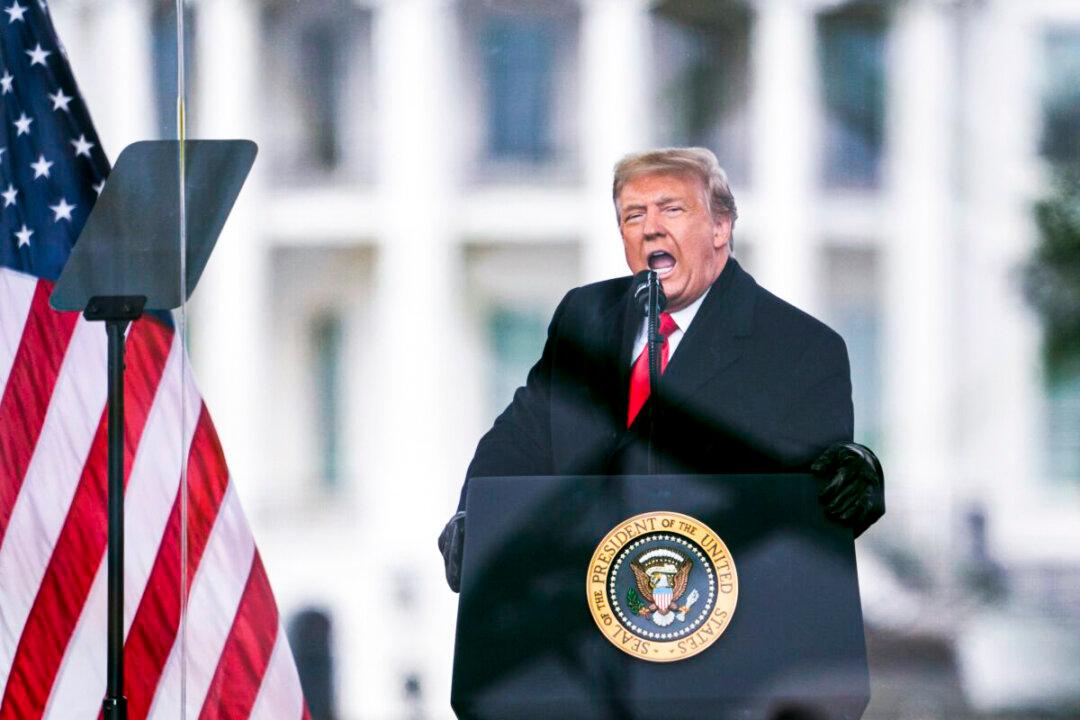Former President Donald Trump is increasingly endorsing candidates for state and national office who align with his views on election integrity, according to a review of the nearly 90 endorsements Trump doled out since leaving office earlier last year.
Of the 41 candidates Trump endorsed since the off-year election on Nov. 2, 36 had either taken decisive action to side with Trump on election integrity or had received an endorsement featuring an explicit reference to their stance on the issue.





